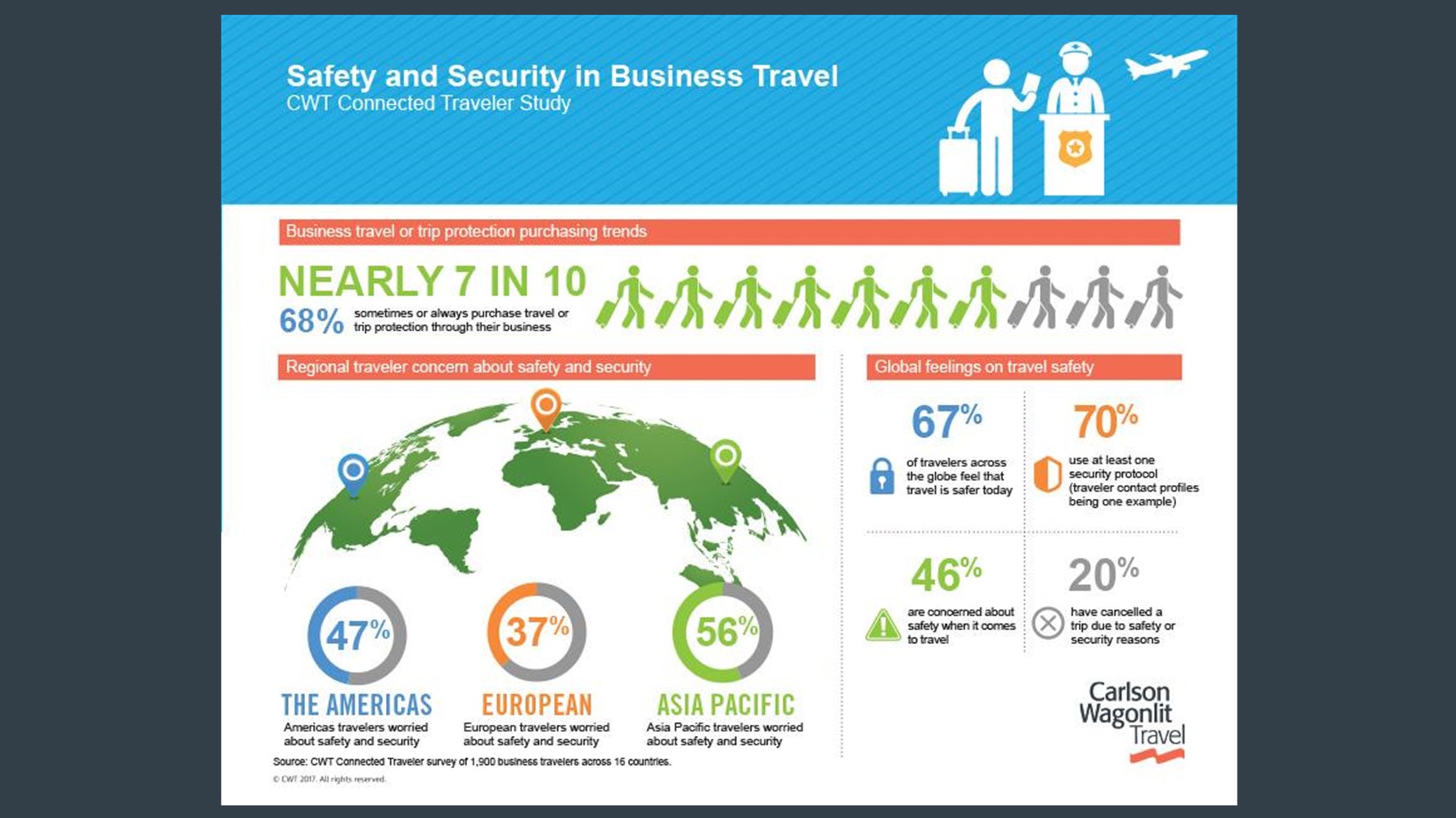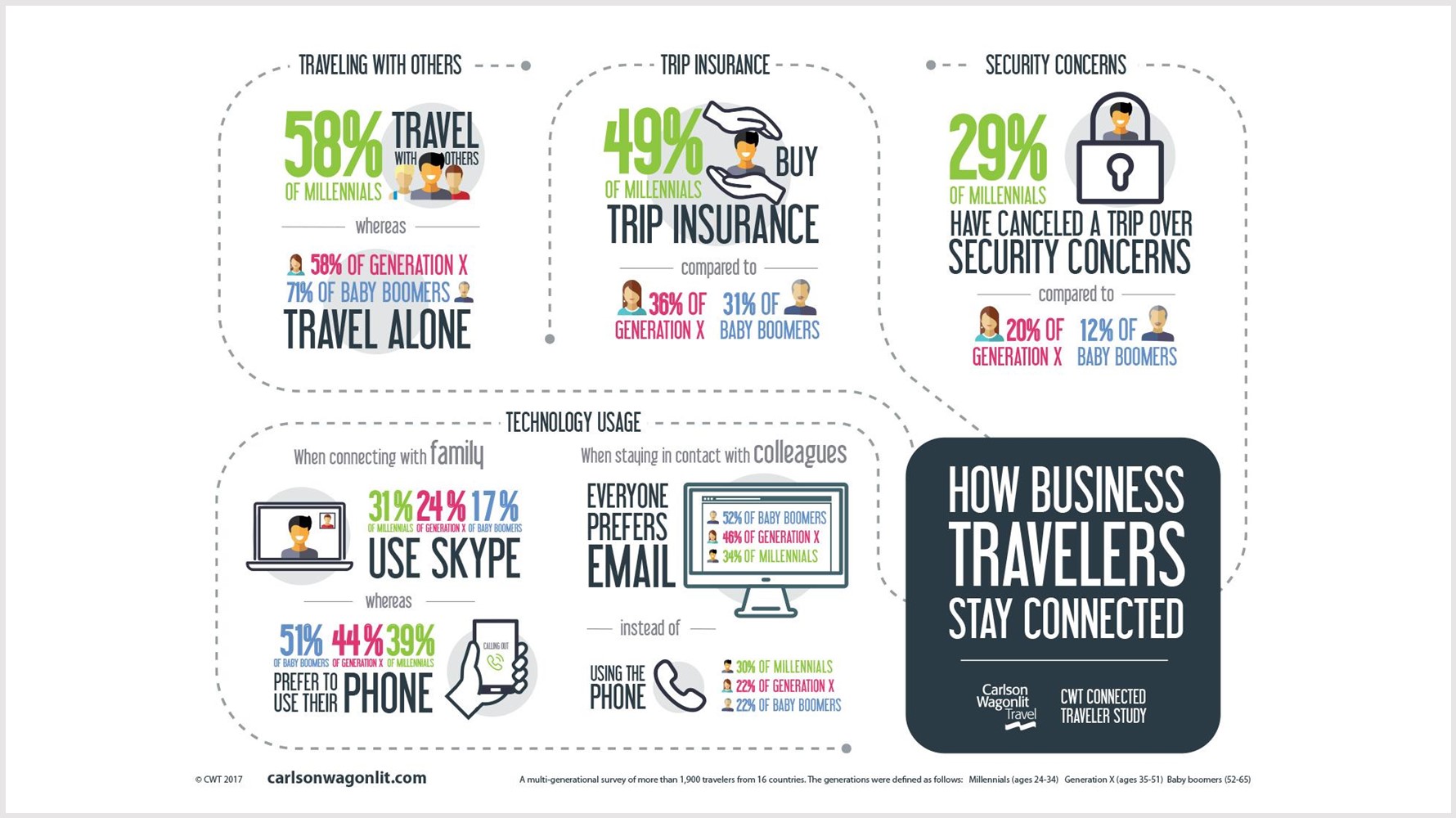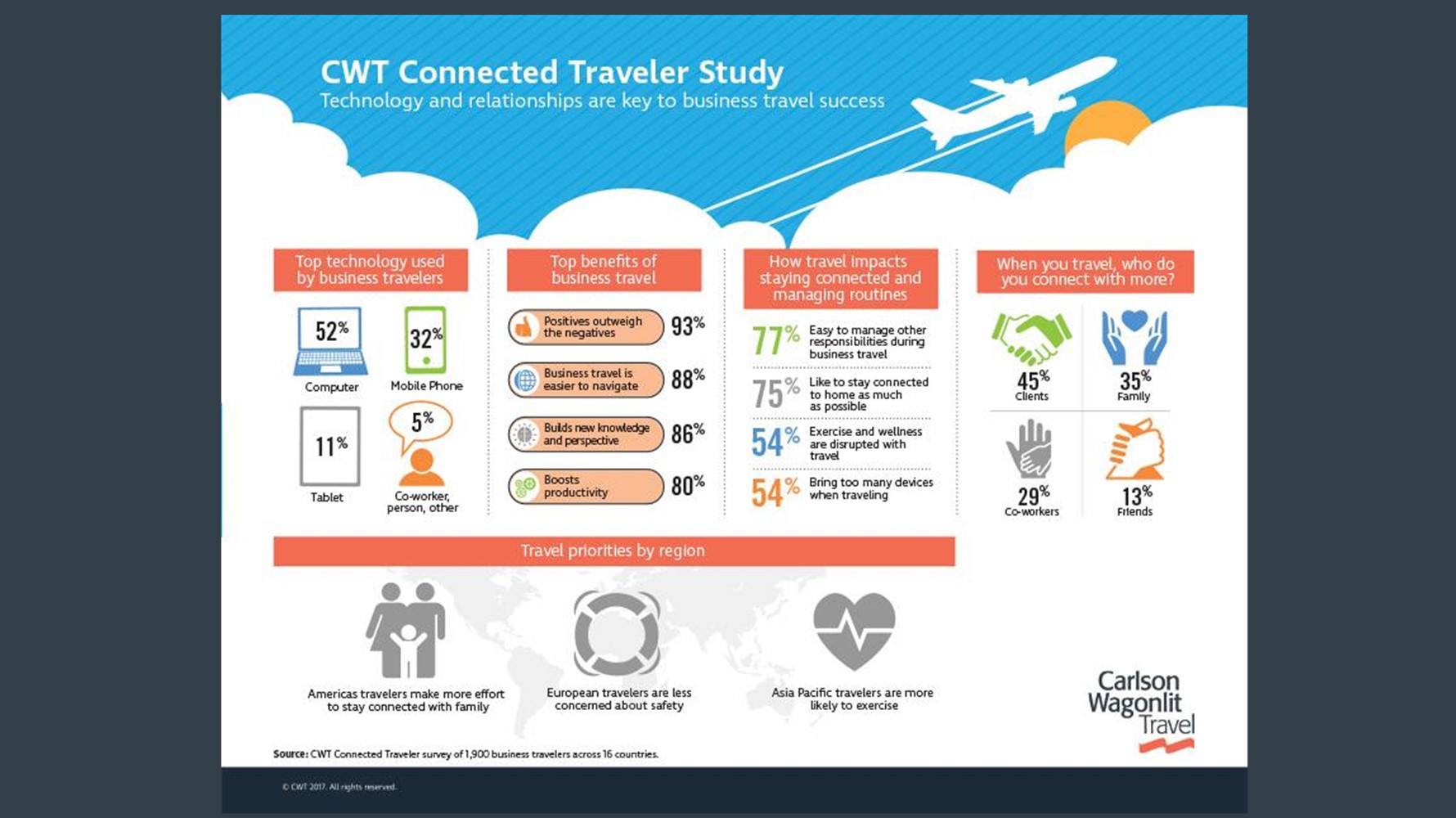Recently conducted research by Carlson Wagonlit Travel found that while more than one-third (37%) of European travelers are concerned about safety and security, their counterparts from other regions worry more. Travelers from the Americas say that they worry about safety and security nearly half of the time (47%), while Asia Pacific travelers worry the most (56%).
“Despite recent terrorist attacks, business travelers say they’re more worried about other things – and that’s surprising,” said Simon Nowroz, Carlson Wagonlit Travel’s chief marketing officer. “We found that, yes, the world seems scarier at times – but travelers believe they have more tools at their disposal to keep them informed and safe.”
Terrorism only ranks fifth (35%) among safety concerns, despite the high visibility of terrorist attacks. “Forgetting something needed for work” ranked higher (40%), as did “losing something important” (38%), “being robbed or attacked” (37%) – and even “weather conditions” (37%).
The CWT Connected Traveler survey of more than 1,900 individuals found that two-thirds (67%) of business travelers believe travel is safer today than in the past, as they have more tools to mitigate safety concerns. Seven out of ten travelers use at least one of their employer’s security protocols, such as traveler tracking or emergency contact profiles. And more than two-thirds (68%) buy travel insurance.
The study did reveal several findings of concern. For example, one in five travelers have cancelled a trip due to concerns about their safety and security. And 30% say they are worried about their health and wellbeing when it comes to traveling.
Regional differences
The study revealed some intriguing regional differences between the Americas, Asia Pacific (APAC), and Europe, Middle East and Africa (EMEA). For example, only 7% of APAC travelers said they were “not concerned” about personal safety while traveling for business. That percentage rose to 12% for Americas travelers and 21% among EMEA travelers. This is reflected in the fact that APAC travelers appear to be better prepared. For example, more than half (52%) of APAC travelers maintain an up-to-date emergency contact profile compared to 38% in the Americas and only 34% in EMEA.
APAC travelers are also more likely to sign up for notifications of real-time risks (41%). Only 33% do in the Americas, while only 29% do from EMEA. APAC travelers were also more likely to know ahead of time about local medical or security services providers. More than a third (35%) of APAC travelers planned for these services ahead, versus 25% in the Americas and 20% in EMEA.
“Today’s travelers are sophisticated,” said Nowroz. “They’re signing up for alerts, they’re paying attention to the news and they use the available tools at their disposal. So while travel may seem risky, they’re taking steps to stay safe.”
About the survey
The CWT Connected Traveler Study was created by Carlson Wagonlit Travel and conducted through Artemis Strategy Group March 30-April 24, 2017. Survey data was collected from more than 1,900 business travelers between the ages of 25-65 from the Americas (Brazil, Canada, Chile, Mexico and the United States), EMEA (France, Germany, Italy, Spain, Sweden and the United Kingdom) and APAC (Australia, China, India, Japan and Singapore). To participate in the study, business travelers were required to have made more than four business trips within the past 12 months. The purpose of this study was to understand how business travelers stayed connected to both work and home while on the road.
About Carlson Wagonlit Travel
Companies and governments rely on us to keep their people connected. We provide their travelers with a consumer-grade travel experience, combining innovative technology with our vast experience. Every day we look after enough travelers to fill almost 200 Boeing 747s and around 100,000 hotel rooms, and handle 95 corporate events. We have more than 18,000 people in nearly 150 countries, and in 2016 posted a total transaction volume of US$ 23 billion.





